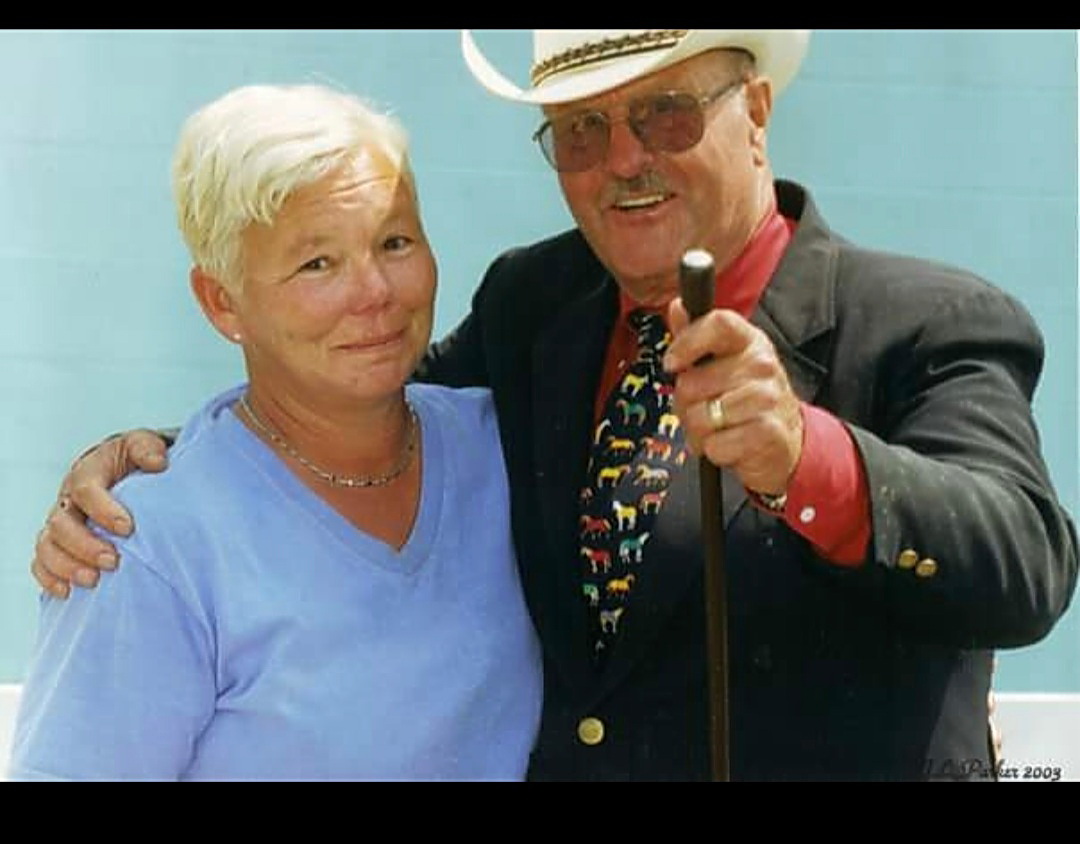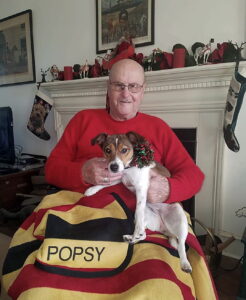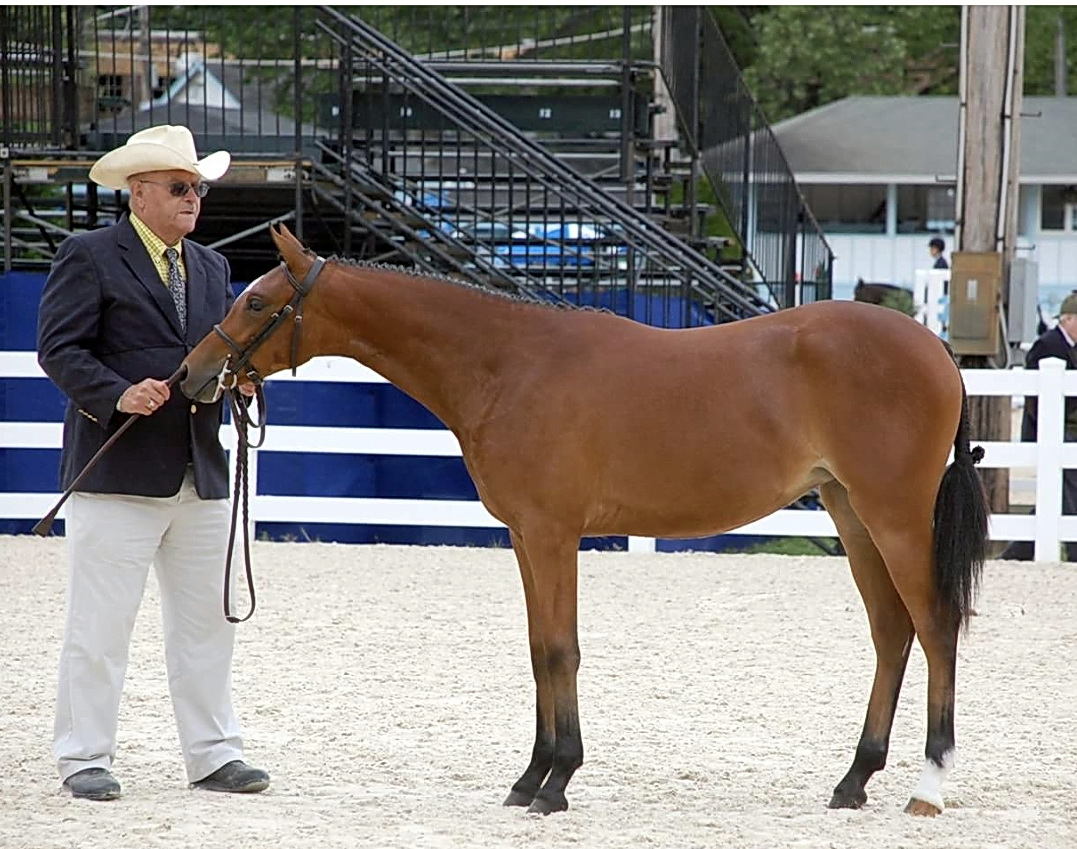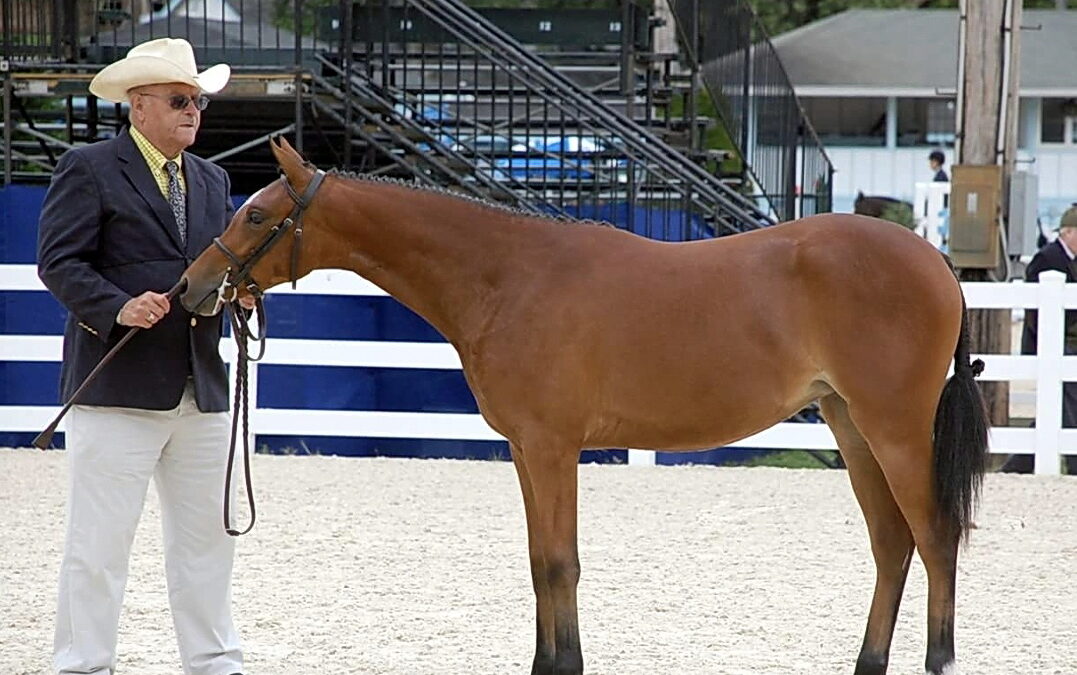A quick description of Ray Francis would be perfectly accurate using just three words: dignified, respected and meticulous.
But when one talks about him as a horseman’s horseman, there has to be more detail to explain his essence. A convivial top trainer and judge who made a graceful transition from riding in competition to showing young horses in hand and serving as head of the U.S. Equestrian Federation’s hunter breeding committee, he set a standard and left his mark on the industry, as well as the people who are a part of it.

Ray and Cheryle Francis. (Photo by James Leslie Parker)
When he died yesterday at age 96, we lost a true gentleman who not only did it all, but more important, did it all well. With his loss coming just days after the passing of Mason Phelps and John Franzreb, the equestrian community is truly bereft.
Ray’s wife, Cheryle, said “My belief is that Devon Horse Show is going on in heaven and all the special people are there.”
Rita Timpanero, a fellow judge who was a longtime friend of Ray’s, noted that although he had health problems in recent years and was confined to his chair and bed much of the time, Ray still had that special twinkle in his eye and loved being with Princess, a Jack Russell she bought for him that became his constant companion.
Ray and Cheryle, together for 42 years, ran Offington Stable in Pennsylvania. It was named for the horse business Ray and his mother had in his native Britain, where he left school at age 14 to work in the stable on the historic Offington Hall estate after his father died of a heart attack.
He was involved with a broad spectrum of equestrian activities–teaching and training, playing polo as well as fox hunting and showing, As a youngster aboard a 12.2-hand hackney pony named Bill, he set a record, jumping a five-foot, eight-inch fence in competition. He would hitch his pony to a cart and drive him to the shows, then saddle up and compete, before putting Bill in harness again and heading home.
He came to the U.S. in 1959, figuring rightly that in those days, he could make a better living in America than in England, though he never lost his delightful British accent or precise diction. In Ohio, he worked at Cyrus Eaton’s stable, Acadia Farms. He replaced a mediocre group of horses there with better mounts, and soon Eaton’s friends started coming around and bringing their children for lessons.
Acadia became one of the country’s top show stables in the 1960s. Ray’s star students included Pam Carmichael, who had Chance Step and Lansonette, a pair that became the Horse of the Year and reserve two years in a row for the junior hunters. Pam is the mother of top show jumper Lillie Keenan.
Trainer Robin Rost Brown remembered that when she was growing up in the 1970s, Ray was very businesslike. “His kids (students) were always presented perfectly, horses presented perfectly. He brought us up to a new standard, a new level.”
When Ray turned to hunter breeding competition, he put on the white cowboy hat that was his trademark in the ring. Named leading handler at Devon eight times, he also was involved in breeding horses that he showed. Hunter breeding day at Devon in 2016 was dedicated to him; it was the first time in 45 years that he couldn’t show there.

Ray showing at Devon. (Photo courtesy of Cheryle Francis)
Some of the best horses he worked with included Trouble with Tom (his first in-hand horse), Beau’s Cottage, a pony named Flying Mouse, Given Road and Character Count, as well as Anastazia and Spanish Spear (both Best Young Horse at Devon), among many others.
Despite his busy career, he always found time to put his efforts toward the betterment of the sport, serving as president of the National Professional Horsemen’s Association, as well as heading the Ohio and Eastern Pennsylvania chapters, and becoming vice chairman of USEF Zone II.
After he and Cheryle closed their stable, they moved to Maryland. Their location on the Chester River was perfect, next door to hunter pony breeder Nancy Jayne Reed of Lands End Farm, whom he advised and helped in promotion of her ponies.
Explaining why Ray was so popular, National Horse Show Secretary Cindy Bozan noted that “first and foremost, in the minds of horsemen, if anything ever happened, you knew you could call Ray. If you were broken down on the side of the road, without a question he would be there with a trailer, no matter what the time. He was a true friend and a horseman. He always had a joke, he always had a laugh. He understood everything there was about getting to the ring, being in the ring.”
Ray earned many honors outside the show ring, including the U.S. Hunter Jumper Association’s Lifetime Achievement Award. He is also in the National Show Hunter Hall of Fame and received the Pennsylvania Horse Show Association Lifetime Achievement Award, in addition to the National Professional Horsemen’s Association’s Frank Hawkins Lifetime Achievement Award and the New England Equitation Finals Lifetime Achievement Award, as well as the USEF’s Pegasus Award.
Those wishing to make a donation in Ray’s memory may contribute to Compass Regional Hospice 150 Courseball Dr., Centreville, MD, 21617; the Equestrian Aid Foundation (https://www.equestrianaidfoundation.org) or Danny and Ron’s Dog Rescue (https://dannyronsrescue.org).
Cheryle, who is secretary of the Devon Horse Show, said Ray didn’t want a funeral and was cremated, but asked that a tablespoon of his ashes be placed in the Dixon Oval at Devon. You can expect that there will be some celebrations of his life. Perhaps the National Horse Show can do something for Mason, the former chairman; John Franzreb, the longtime ringmaster and Ray.
“It’s been a wonderful life with horses,” Ray once told me.
“I had some beautiful horses, great horses, and known a lot of nice horses too. And good riders. I’ve got no complaints.”




